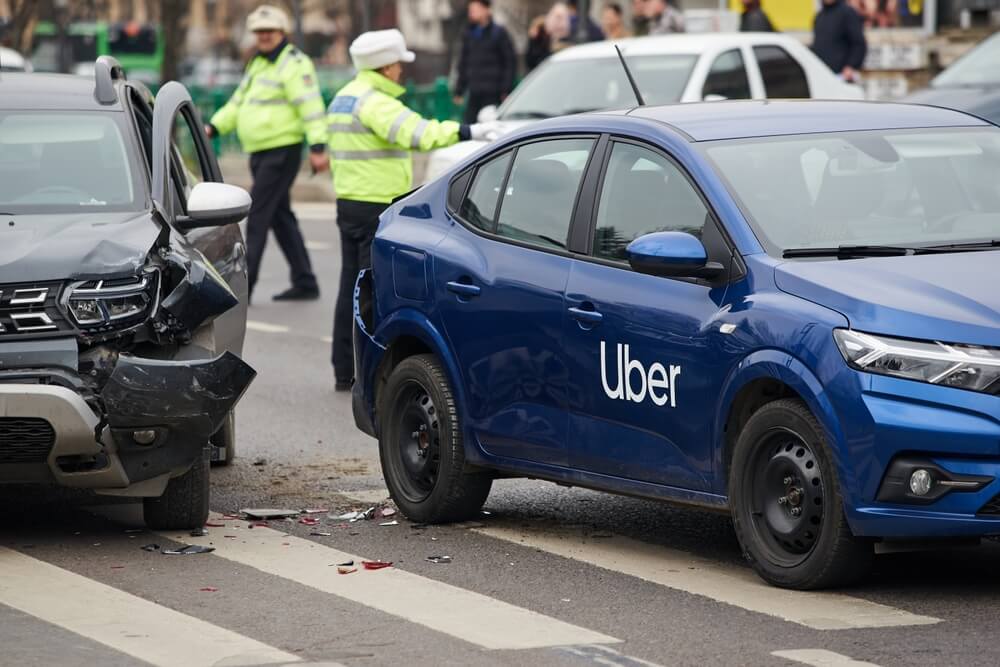
Hailing an Uber for a convenient and safe ride home has become a familiar routine for many. But what happens when that routine takes a terrifying turn with an unexpected accident? If you suffered injuries in an Uber accident, the confusion and stress can be overwhelming. The question that likely looms large: who is liable?
Determining liability in Uber accidents can be complex, as it involves multiple parties and nuanced insurance policies. Let’s explore the different scenarios, explain who might be responsible, and equip you with the knowledge supported by a personal injury lawyer.
Uber operates on a technology platform that connects riders with drivers through a smartphone application. When a rider requests a ride through the app, nearby drivers receive the request and can choose to accept it. Once a driver accepts the ride, the app provides directions to the pickup location and the destination.
When an Uber accident occurs, determining liability hinges on various factors, including the driver’s status within the Uber system, the circumstances surrounding the accident, and applicable state laws. Here’s a breakdown of potential scenarios and liability considerations:
If the accident occurs while the driver is offline and not conducting rideshare business, liability generally rests with the driver’s personal insurance policy. Uber’s insurance coverage typically does not apply during this phase, as the driver is not actively engaged in ridesharing activities on behalf of the company.
If the driver is available but has not yet accepted a ride request, liability may still primarily fall on the driver’s personal insurance policy. However, some states have enacted laws or Uber has implemented contingent liability coverage during this phase, providing limited coverage in certain circumstances.
When the driver has accepted a ride request and is actively transporting a passenger or en route to pick them up, Uber’s commercial insurance policy typically applies. Uber’s insurance coverage includes liability coverage for bodily injury and property damage, as well as coverage for uninsured or underinsured motorists.
In some cases, liability for an Uber accident may extend beyond the driver and Uber itself. For instance, if another motorist causes the accident, their insurance policy would likely be the primary source of compensation for injuries.
Additionally, if a defective vehicle part or hazardous road condition contributes to the accident, liability could involve vehicle manufacturers, government entities responsible for road maintenance, or other parties.
If you’ve been injured in an Uber accident, taking the following steps can help protect your rights and ensure you receive fair compensation for your injuries:
Navigating the legal aftermath of an Uber accident can be daunting. At Marcus & Mack, we understand the emotional and financial toll such accidents take. Our team of dedicated personal injury lawyers will:
Determining liability in an Uber accident can be complex, depending on various factors, such as the driver’s status within the Uber system and the circumstances of the accident.
Whether Uber’s commercial insurance coverage applies or liability falls on the driver’s personal insurance policy, seeking legal guidance is crucial to protect your rights and receive fair compensation for your injuries.
If you or a loved one suffered injuries in an Uber accident, don’t hesitate to reach out to the personal injury lawyers at Marcus & Mack for your free case evaluation. We’re here to help you navigate the complexities of your case and pursue the compensation you deserve. Contact us today at (724) 349-5602 or through our online form to discuss your case and your legal options.
Marcus & Mack
